Disclosure: This article contains affiliate links. We may earn a commission from purchases at no extra cost to you, which helps our travel content.
The first time I heard about Abéché, it wasn't from a glossy travel magazine or a viral Instagram post. It was from an elderly Chadian man I met at a craft beer festival in Portland who noticed my interest in his intricate silver jewelry. 'This design,' he said, tracing the geometric pattern, 'comes from my hometown of Abéché. Once a great sultanate and trading post where Ottoman influence met the heart of Africa.' That chance encounter planted a seed that took me nearly a decade to nurture into an actual journey. Last winter, I finally made the trek to this remote historical treasure in eastern Chad, a city that has witnessed the ebb and flow of empires yet remains largely untouched by modern tourism. What I discovered was a living museum where Ottoman architecture stands alongside colonial remnants, where market traditions established centuries ago continue uninterrupted, and where the hospitality rivals any I've experienced in my decades of travel.
Getting to Abéché: A Journey for the Committed Traveler
Let's be clear from the start: reaching Abéché isn't for the faint-hearted or those seeking Instagram-perfect comfort. This journey represents travel in its most authentic form—challenging, occasionally frustrating, but ultimately rewarding beyond measure.
My route began with a flight to N'Djamena, Chad's capital, where I spent two days acclimating and arranging the next leg of my journey. Pro tip: use this time to stock up on supplies, exchange currency, and—crucially—secure your travel permits. Chad requires foreigners to carry an authorization to travel (Autorisation de Circuler) outside the capital, and this document is non-negotiable.
From N'Djamena, you have two realistic options: a grueling 12-14 hour drive across increasingly rough terrain or a seat on one of the twice-weekly flights operated by the national carrier. I chose the flight, which cost approximately $220 round-trip—a significant expense for a budget traveler but worth every franc considering the alternative.
Before departure, I made sure my travel insurance was comprehensive and up-to-date. Given Abéché's limited medical facilities and the remoteness of the region, this isn't the place to skimp on coverage.
Upon landing at Abéché's modest airport, the real adventure begins. The city doesn't see many Western tourists, so don't expect English speakers or tourist infrastructure. My rusty French and a pocket dictionary of Arabic phrases became my most valuable tools—that and a healthy dose of patience and good humor.
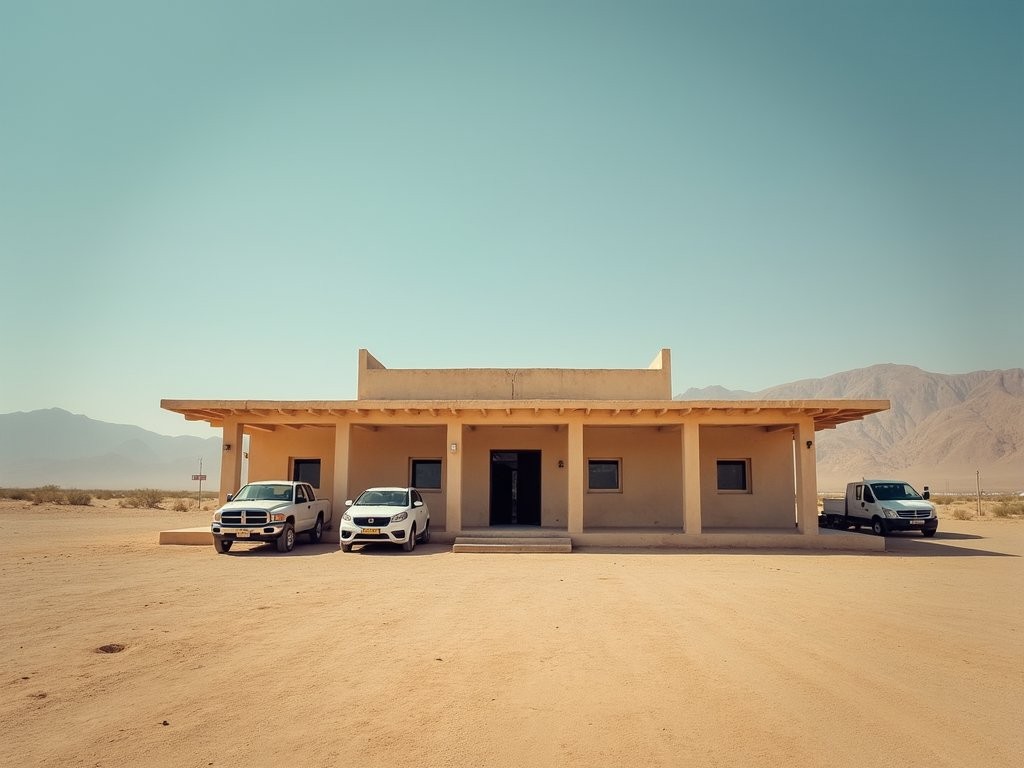
💡 Pro Tips
- Arrange your Autorisation de Circuler at least 3-4 days before departing N'Djamena
- Book flights to Abéché well in advance as seats fill quickly with aid workers and government officials
- Download offline maps and translation apps before leaving the capital—internet connectivity is extremely limited
The Ottoman Legacy: Mosques and Palaces of a Forgotten Era
Abéché's historical significance stems largely from its position as the easternmost major outpost of Ottoman influence in Central Africa. While many travelers associate Ottoman architecture with Turkey or the Middle East, seeing these distinctive styles adapted to the Sahelian environment offers a fascinating study in cultural fusion—something that resonates deeply with me as someone who grew up between cultures.
The Grande Mosquée d'Abéché stands as the city's most impressive Ottoman-era structure. Built in the late 19th century, its design reflects the typical Ottoman mosque layout but incorporates local building materials and techniques. Unlike the grand mosques of Istanbul that I've visited previously, this one feels more intimate, its mud-brick construction blending harmoniously with the surrounding landscape. As a non-Muslim visitor, I was permitted to view the exterior and courtyard but not enter the prayer hall itself. Always approach with respect—I dressed conservatively and asked permission before taking any photographs.
Perhaps even more intriguing is the Sultan's Palace, which served as the seat of the Ouaddaï Sultanate until French colonial forces arrived in the early 20th century. Today, the palace complex lies in partial ruin, though local guides can help you envision its former grandeur. My guide, Ibrahim, whose grandfather had served in the Sultan's court, provided insights no guidebook could offer.
"The palace once housed over 200 people," he explained, gesturing to crumbling walls that once separated the harem quarters from public reception areas. "The Sultan maintained diplomatic relations with the Ottoman Empire while remaining largely independent in practice."
For exploring these historical sites, I found my travel daypack perfect for carrying water bottles, a notebook, and my camera gear while keeping my hands free for navigating uneven terrain. The breathable back panel proved invaluable in Chad's intense heat.
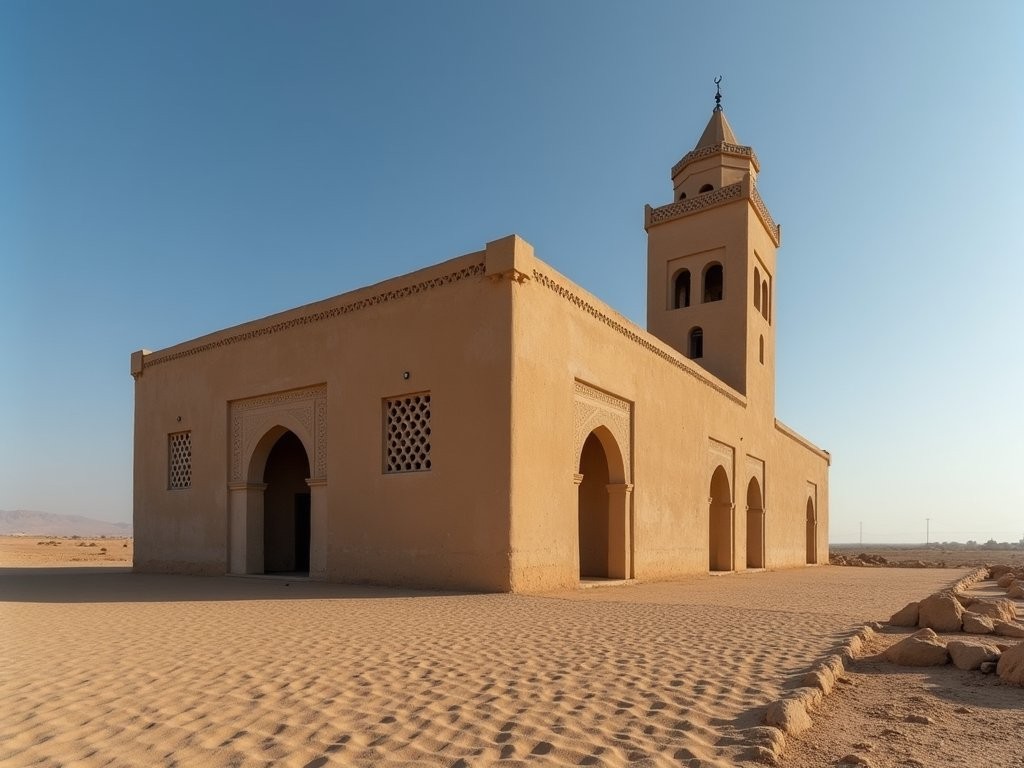
💡 Pro Tips
- Visit the Grande Mosquée early morning or late afternoon when the light makes the mud-brick architecture glow
- Hire a local guide through your accommodation—their knowledge transforms ruins into living history
- Bring small denominations of local currency for voluntary donations at religious sites
Colonial Echoes: French Architecture and Administrative Legacy
As the Ottoman influence waned in the early 20th century, French colonial powers established their presence in Abéché, creating a fascinating architectural counterpoint to the city's Islamic heritage. The colonial district, while modest compared to those in West African cities like Dakar or Saint-Louis, offers a compelling glimpse into this transitional period of Chad's history.
The former French Commandant's residence stands as the most prominent colonial structure, its wide verandas and shuttered windows designed to mitigate the harsh Sahelian climate without modern amenities. Now repurposed as a government building, it's not officially open to tourists, but I found that a polite request and expression of genuine historical interest sometimes grants access to at least view the exterior courtyard.
More accessible is the old colonial post office, a simple yet elegant building that continues to function in its original capacity, albeit with modern telecommunications equipment awkwardly retrofitted into the historical structure. The colonial-era hospital, though largely modernized, still retains its original administrative building with characteristic French colonial architectural elements.
What struck me most about Abéché's colonial architecture was its utilitarian nature. Unlike the grandiose colonial showpieces found in capital cities across formerly French Africa, these buildings reflected the remote, pragmatic nature of administration in Chad's eastern frontier. They weren't built to impress European visitors but rather to function in harsh conditions.
For photography enthusiasts like myself, these buildings present both challenges and opportunities. The harsh midday sun creates difficult lighting conditions, so I scheduled my architectural photography for early mornings and late afternoons. My polarizing filter proved invaluable for managing glare and enhancing the textural details of these weathered structures.
It's worth noting that photography of government buildings requires sensitivity. Always ask permission before taking photos, and be prepared for occasional refusals, which should be respected without question.
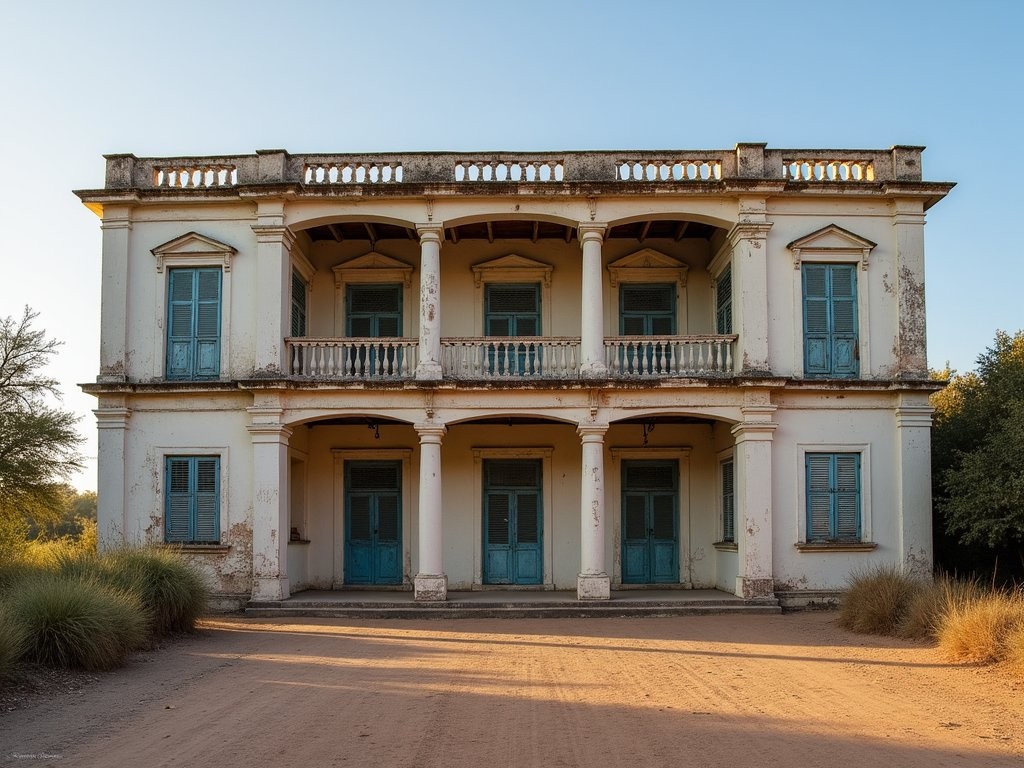
💡 Pro Tips
- Visit colonial sites early in the day when government offices are less busy and officials more accommodating to visitors
- Bring printed examples of your previous travel photography if you want special access to historical buildings
- Learn basic architectural terminology in French to better communicate your interest to local officials
The Grand Market: Where History Lives in Daily Commerce
If Abéché's mosques and colonial buildings represent its architectural history, then the Grand Market embodies its living cultural heritage. This sprawling marketplace has operated continuously for centuries, serving as a commercial hub where trade routes from North Africa, the Middle East, and Central Africa converge.
Unlike the sanitized, tourist-oriented markets I've encountered elsewhere, Abéché's Grand Market remains authentically functional—a place where locals conduct daily business with little concern for visitors. This authenticity is precisely what makes it so fascinating.
The market follows a traditional layout with sections dedicated to specific goods: textiles, spices, livestock, metalwork, and household items each occupy designated areas. The spice section assaults the senses in the best possible way, with pyramids of vibrant powders and the competing aromas of cumin, cinnamon, and locally grown chilies. Here, I purchased small quantities of unique spice blends that I've since used to recreate Chadian dishes at home—edible souvenirs that continue to evoke memories of my journey.
The textile section offers another highlight, featuring both imported fabrics and locally produced textiles. The distinctive indigo cloths of the region show clear influences from both North African and sub-Saharan traditions, reflecting Abéché's position at this cultural crossroads. I spent hours observing the intricate bargaining rituals between sellers and local buyers, a commercial dance with unwritten rules that have evolved over centuries.
Silversmiths and metalworkers represent another fascinating aspect of the market, creating jewelry and household items using techniques passed down through generations. Many designs incorporate geometric patterns that echo those found in the city's Ottoman-era architecture, creating a visual continuity between past and present.
Navigating the market requires stamina and awareness. I found my money belt essential for keeping valuables secure while leaving my hands free to examine goods and take photographs when appropriate. The market's narrow pathways can become extremely crowded, especially in morning hours, so maintaining awareness of your surroundings is crucial.
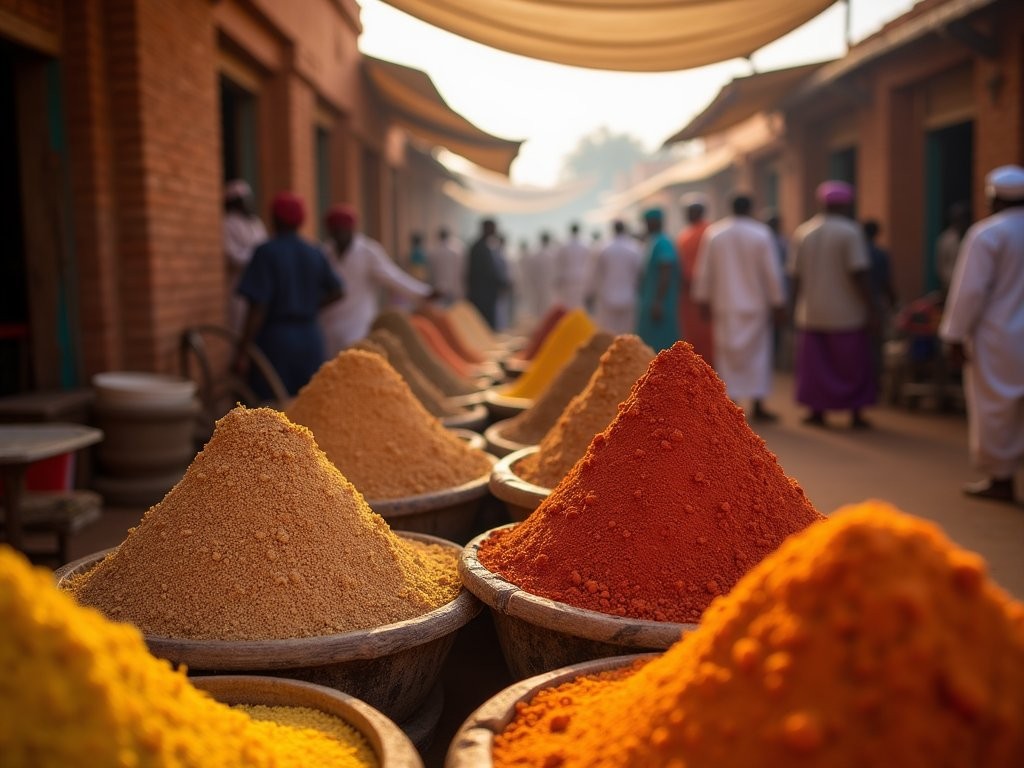
💡 Pro Tips
- Visit the market multiple times during your stay—morning offers the freshest produce while afternoons are less crowded
- Ask permission before photographing vendors or their goods; a small purchase often earns goodwill
- Bargaining is expected but should be conducted with respect; start at about 60% of the initial asking price
Where to Stay: Budget Accommodations in a Remote Destination
Accommodation options in Abéché reflect its status as a regional center that primarily serves local travelers, aid workers, and the occasional business visitor rather than tourists. Luxury options simply don't exist, which aligns perfectly with my preference for authentic, budget-conscious travel experiences.
Hotel Nassour represents the city's most established option, offering basic but clean rooms with essential amenities like air conditioning (crucial during Chad's intense heat), private bathrooms, and relatively reliable electricity via generators during the frequent power outages. At approximately $40-50 per night, it's not exactly cheap by regional standards, but it provides a necessary comfort base for exploring this challenging destination.
For more budget-conscious travelers, several small guesthouses operate throughout the city, typically charging $15-25 per night for simple rooms with shared facilities. I spent three nights at Maison d'Hôte Ouaddaï, where what the rooms lacked in amenities was compensated by the owner's incredible hospitality and knowledge of local history. These smaller establishments rarely have online presences, so securing a room typically requires either showing up in person or having a local contact make arrangements.
Regardless of where you stay, certain preparations will significantly improve your comfort. I found my portable water filter indispensable, as tap water throughout Abéché is unsafe for visitors. Similarly, a good quality sleep sheet provides both hygiene and comfort on beds of questionable cleanliness.
Power outages are frequent and unpredictable throughout Abéché. Every seasoned traveler knows the value of a headlamp, but here it's not just useful—it's essential. Evenings often find entire neighborhoods plunged into darkness, with only the gentle glow of oil lamps illuminating small food stalls and family compounds.
Internet connectivity remains extremely limited throughout the city. Some accommodations advertise Wi-Fi, but in my experience, this ranged from painfully slow to completely non-functional. I embraced this digital detox, using evenings to journal my experiences and engage with fellow guests rather than scroll through social media.
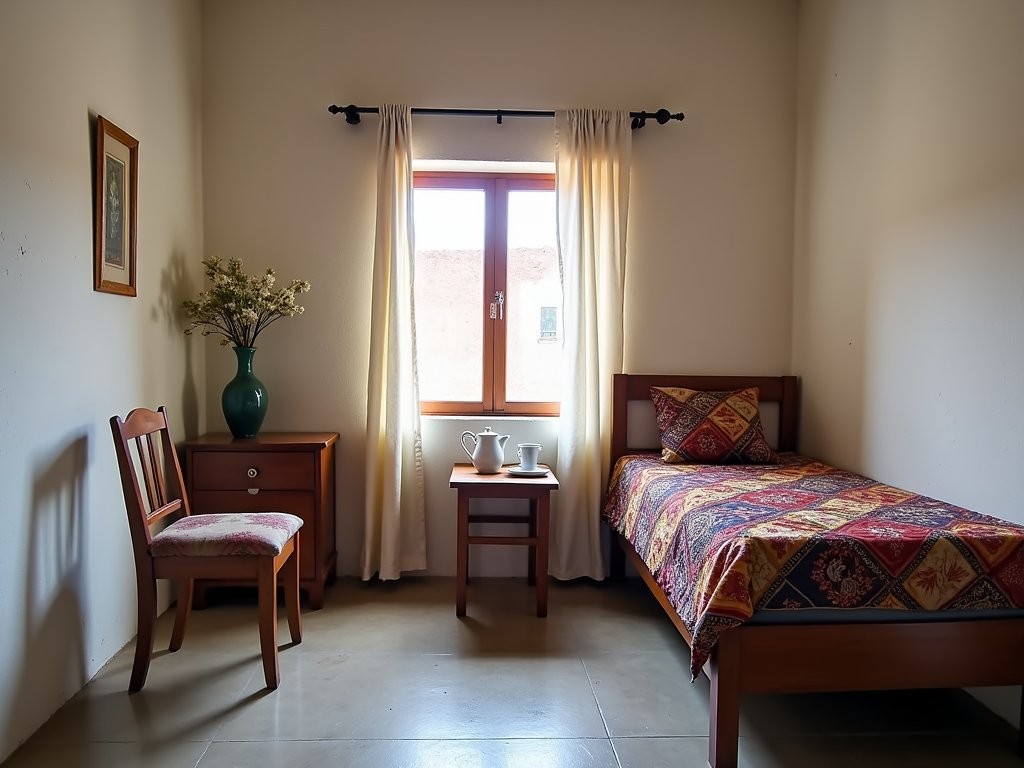
💡 Pro Tips
- Confirm whether your accommodation has generator backup before booking—essential during Chad's frequent power outages
- Bring your own towel, toilet paper, and basic toiletries as these are rarely provided even in established hotels
- Request a room away from the street if possible—early morning calls to prayer and market preparations start before dawn
Cultural Sensitivities and Practical Challenges
Traveling responsibly in Abéché requires more than just packing the right gear—it demands cultural awareness, flexibility, and respect for local customs that may differ significantly from Western norms. As someone who has navigated the complexities of various cultural contexts throughout my travels, I found Chad particularly nuanced.
Abéché remains a deeply conservative Muslim city where religious practices govern daily life. Prayer times structure the day, with many businesses closing briefly during these periods. As a visitor, I found that respecting these rhythms—rather than fighting against them—enhanced my experience and interactions with locals.
Dress codes should be taken seriously, particularly for women travelers. Both men and women should cover shoulders and knees at minimum, though women will feel more comfortable and attract less unwanted attention with ankle-length skirts or pants and loose-fitting tops that cover the elbows. I packed lightweight, breathable fabrics that provided appropriate coverage while offering some relief from the heat.
Photography requires particular sensitivity. While architectural photography is generally acceptable (with previously mentioned caveats regarding government buildings), photographing people without explicit permission is considered highly intrusive. When I wanted to capture images of daily life, I found that spending time conversing with subjects first, explaining my interest, and showing genuine respect for their culture typically led to permission being granted.
Language presents another significant challenge. French serves as Chad's official language, but in Abéché, Arabic is widely spoken, along with local languages like Maba. Basic French phrases will help navigate essential services, but connecting meaningfully with locals often requires creative communication strategies combining limited vocabulary with respectful body language and genuine curiosity.
Safety considerations cannot be overlooked. While I found Abéché itself relatively secure during daylight hours, the broader region has experienced periods of instability. Before traveling, I consulted not only official travel advisories but also connected with aid workers in the region through professional networks to gain current, ground-level insights. During my stay, I registered with my embassy and maintained regular communication with contacts outside the region.
Water and food safety demand constant attention. I relied on bottled water (checking seals carefully) and hot, freshly prepared foods from established vendors. Despite these precautions, I still experienced minor stomach issues and was grateful for the comprehensive medical kit I'd packed.
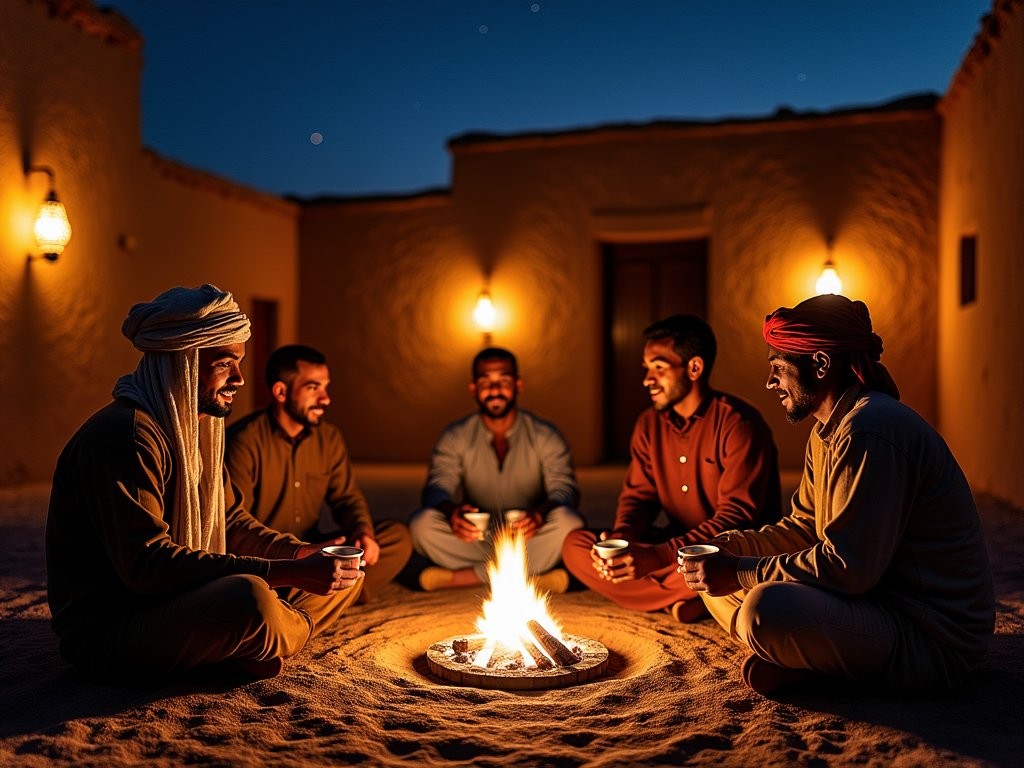
💡 Pro Tips
- Learn basic greetings in both French and Arabic to show respect when entering shops or speaking with locals
- Avoid photographing military checkpoints, government buildings, or infrastructure—it can result in detention and questioning
- Women travelers should consider bringing a lightweight scarf for additional coverage when visiting religious sites or conservative neighborhoods
Final Thoughts
As I boarded my return flight from Abéché, dust-covered and exhausted yet profoundly satisfied, I reflected on what makes certain travel experiences transcend mere tourism. This remote Chadian city, standing at the crossroads of Ottoman influence and French colonialism, offers no comfortable amenities or Instagram-perfect backdrops. What it provides instead is something increasingly rare in our hyperconnected world—a genuine glimpse into a place where history isn't curated for visitors but lives on in daily rhythms largely unchanged for generations.
Abéché won't appear on 'must-visit' lists or trending destination roundups. Its challenges—from basic accommodations to language barriers to limited infrastructure—will deter many travelers. Yet for those willing to embrace discomfort in pursuit of authentic cultural understanding, few destinations offer such rich rewards. In the end, isn't that the essence of meaningful travel? Not collecting passport stamps or social media content, but rather those moments of connection across vast cultural divides that remind us of our shared humanity despite our differences. Abéché offered me those moments in abundance, and for the right traveler, it will do the same.
✨ Key Takeaways
- Abéché offers a rare glimpse into the intersection of Ottoman, French colonial, and indigenous Chadian cultural influences
- Advance preparation is essential—from permits and language basics to appropriate clothing and medical supplies
- Respect for local customs and religious practices opens doors to meaningful cultural exchanges
- Budget travel here means embracing basic conditions while appreciating extraordinary historical and cultural experiences
📋 Practical Information
Best Time to Visit
November to February (winter dry season)
Budget Estimate
$50-75 per day including accommodation, food, local transport and guides
Recommended Duration
5-7 days minimum
Difficulty Level
Challenging
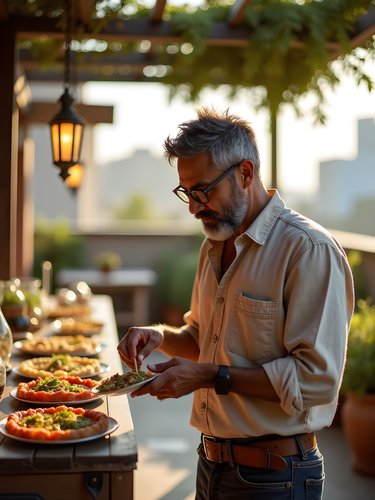
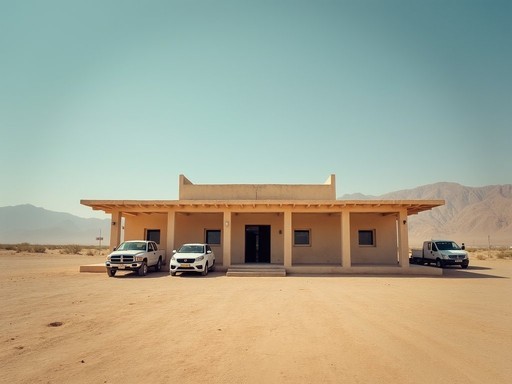
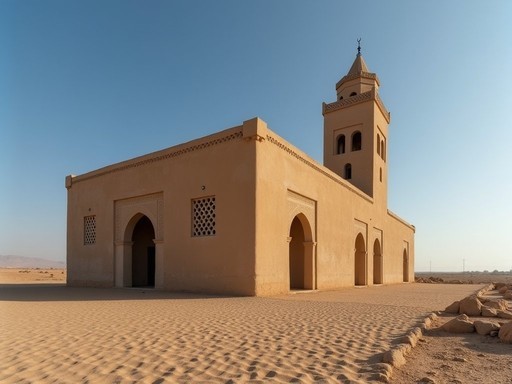
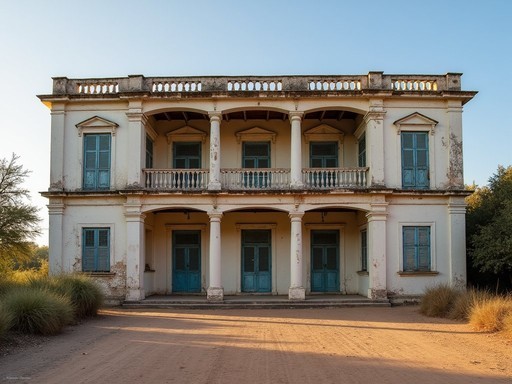
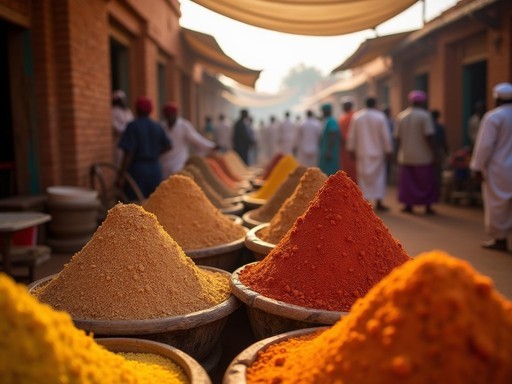
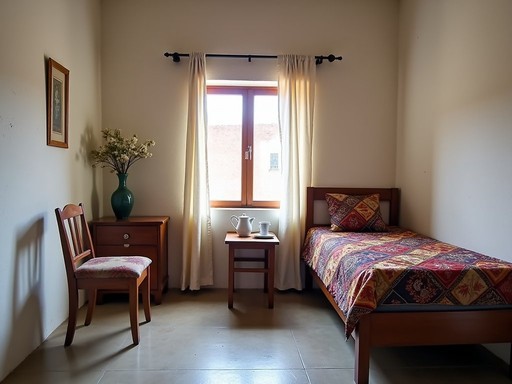
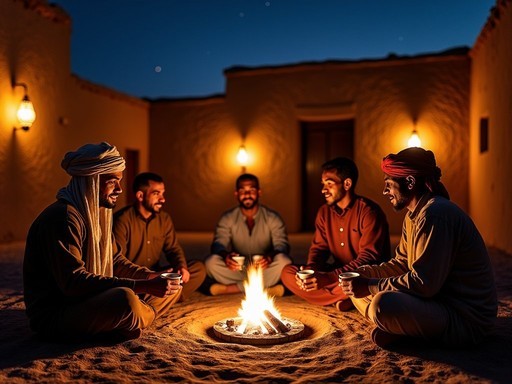


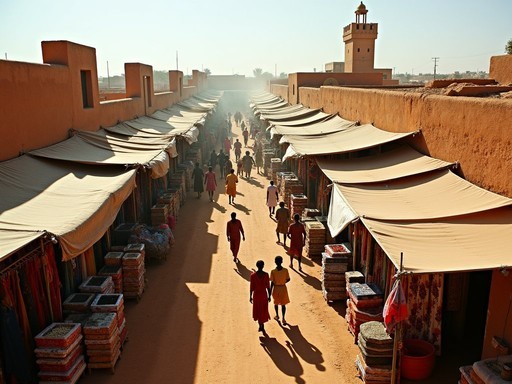

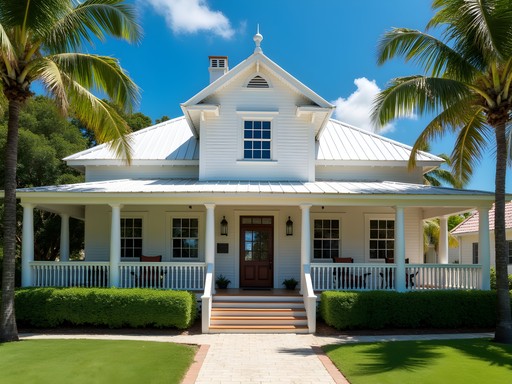

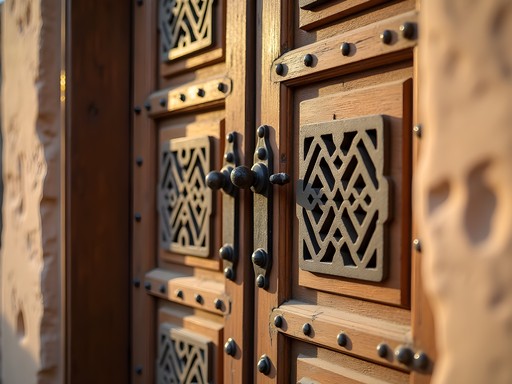
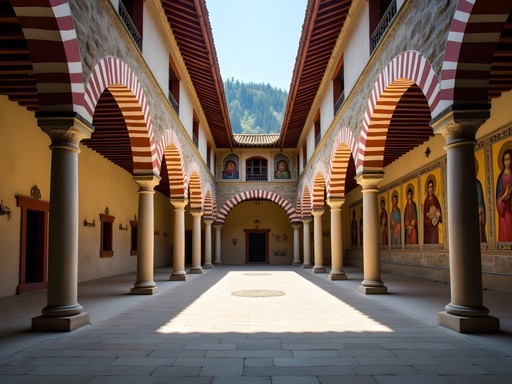
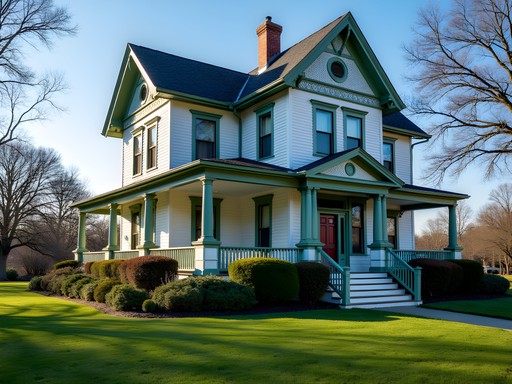
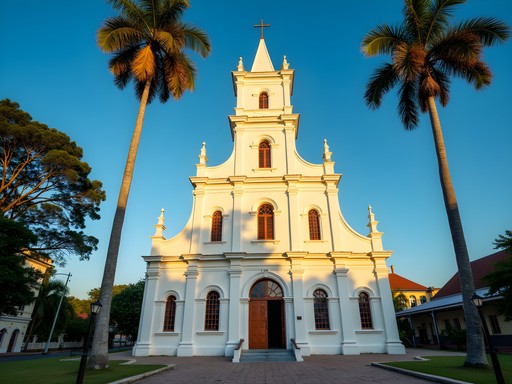
Comments
blueway
This looks incredible! How difficult was the journey to get there? I'm planning a trip to Africa next year but I'm a bit nervous about venturing beyond the more typical tourist destinations.
Ahmed Greene
It's definitely not the easiest destination! Flights to N'Djamena are limited, and then it's either a long overland journey or a small domestic flight to Abéché. The infrastructure is basic, but that's part of what keeps it authentic. Pack plenty of patience and a good sense of humor!
Fatima Sims
Ahmed, your description of the Grand Market brought back such vivid memories! I spent three days exploring Abéché last year and was mesmerized by how the market serves as this living museum where history and daily life intertwine. The silver craftsmanship is extraordinary - I bought a small Ottoman-inspired pendant that gets compliments everywhere I go. One thing I'd add for readers: don't miss the small tea houses on the eastern edge of the market. The elderly men there have fascinating stories about the region's transformation over decades, and if you speak even basic French, they're usually happy to chat. I learned more about local history over tea than I did from any guidebook!
luckyway
Been traveling West and Central Africa for years and somehow never heard much about Abéché's Ottoman connections. The French colonial stuff doesn't surprise me but the earlier history is fascinating. Adding this to my list for next dry season. Your photos of the Grand Market are fantastic btw - that's where the real cultural exchange happens. How's the food situation there for travelers?
wilddiver
Really intrigued by this post! How safe did you feel in Abéché? I've been wanting to explore more of Central Africa but security concerns have held me back.
Ahmed Greene
Valid question! I felt generally safe in Abéché itself, especially in the central areas. I hired a local guide which I'd highly recommend - not just for safety but for cultural context. The situation can change though, so definitely check current travel advisories before planning anything.
Fatima Sims
I was in Chad last year and can confirm - having a local guide makes all the difference. I used Chad Explorer Tours and felt completely at ease, even as a solo female traveler. The eastern regions require more planning than N'Djamena, but the historical richness is worth it!
wavefan
Wow Ahmed, you've done it again! Your writing transported me to Abéché in ways no other travel blog has. I visited Chad briefly in 2023 but completely missed Abéché - now I'm kicking myself! That Ottoman architecture looks incredible, especially the old palace you described. Did you find it difficult to get permission to photograph the historical buildings? Some locals I met in N'Djamena were pretty sensitive about cameras.
Ahmed Greene
Thanks for the kind words! Photography was actually easier than I expected in Abéché. I always asked permission first, and most locals were quite welcoming once they understood my genuine interest in their heritage. The imam at the main mosque was particularly helpful and even gave me an impromptu tour!
wavefan
That's great to hear! I found Chadians to be incredibly hospitable too. Makes me want to plan a return trip focused on the eastern regions.
oceanmaster
How many days would you recommend spending there?
Ahmed Greene
I'd say minimum 3-4 days to really explore the historical sites and the market. 5-6 if you want a more relaxed pace.
George Hayes
Ahmed, this is such an important piece. We get so caught up in the usual West African destinations that places like Abéché get completely overlooked. I've been to N'Djamena twice for work but never made it to Abéché - your description of the Ottoman-era mosques has me seriously reconsidering. The way you connected the craft beer festival encounter to actually making the journey is exactly the kind of story that reminds us why we travel. Did you have any issues with photography permissions at the historical sites? That's always my biggest concern when visiting religious and government buildings in the region.
Ahmed Greene
Thanks George! Photography was mostly fine but always ask first, especially at mosques. Some of the palace ruins required a small fee and permission from local authorities. Worth the effort though - the architecture is stunning.
greenlife
This looks amazing but is it safe to travel there solo? Been wanting to visit Chad for ages
Ahmed Greene
Hey! I traveled solo and felt safe in Abéché itself. Definitely hire a local guide and check current travel advisories before you go. The people were incredibly welcoming.
greenlife
thanks!! really appreciate it
skywanderer
Those market photos are incredible! The colors!
happyclimber
OMG this post is AMAZING!!! 😍😍 I never even heard of Abéché before but now I'm totally adding it to my bucket list! Those Ottoman mosques look INCREDIBLE in your photos. How was the food there? And did you feel safe walking around with your camera? I'm planning a big Africa trip next year and now thinking about including Chad!
skywanderer
I've been wondering the same about camera safety. Following!
Ahmed Greene
Thanks for the enthusiasm! The food was simple but delicious - lots of grilled meats, millet-based dishes, and fresh dates. As for camera safety, I was cautious but had no issues. I used a non-flashy camera bag and always asked permission before photographing people. Having a local guide helps tremendously with both navigation and cultural etiquette.
Venture X
Premium card with 2X miles, $300 travel credit, Priority Pass